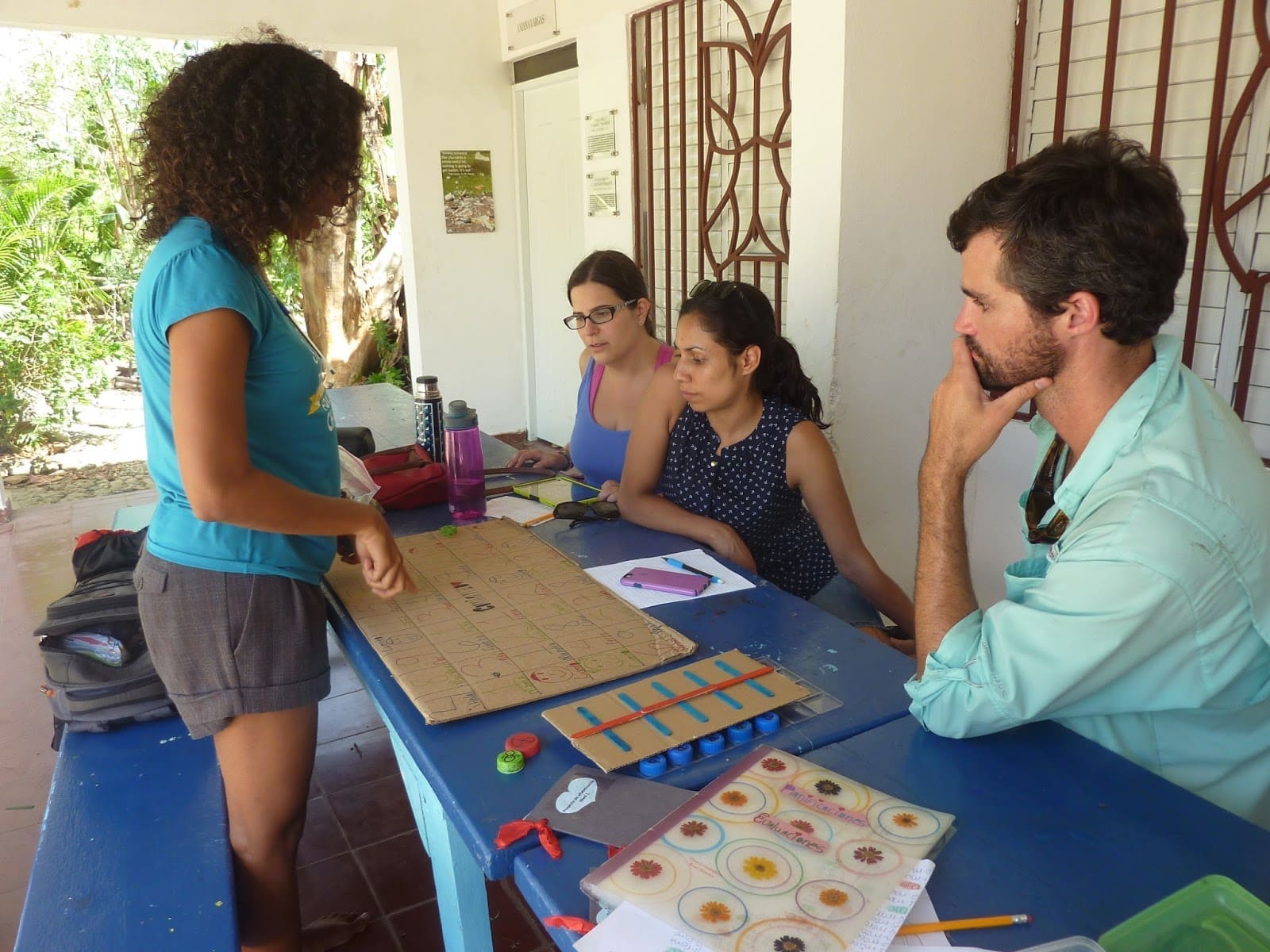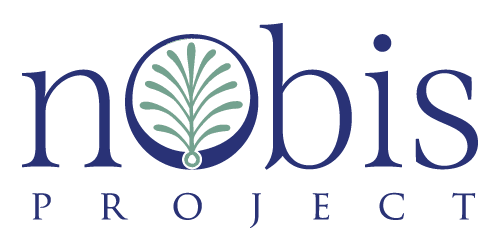By Laura Bishop
Today marked the beginning of our service project for the Mariposa Foundation. Tricia the founder of Mariposa, and a true visionary, outlined the foundation’s most prescient needs. Prior to this meeting we’d received just a brief outline from Amanda and Erika of what our project would entail. Not only did listening to Tricia clarify the particular needs and scope of the related project for me, it also called to mind two of the “Big Ideas” from the Nobis framework that I’ve been becoming familiarized with: Cultural Responsiveness and Power (in several iterations).
 The needs Tricia expressed were:
The needs Tricia expressed were:
1. To continue the work of editing the compiled lesson plans created by past Mariposa volunteers and rounding out the informational guidelines to be included in what will eventually be an instructional manual for the foundation-aka Donde No Hay Libros–which volunteers will be able to use to guide their work with the students. The concept is modeled on the guide Donde No Hay Doctor, a how-to guide written and translated into numerous languages to inform poor communities without access to doctors or health care simple directions for taking care of their personal health and providing simple care for less-acute or serious health matters necessitating few or inexpensive resources. Like “Doctores”, a requirement for the Mariposa guide is that each lesson involve a small amount of inexpensive resources to be completed.
2. Assessing the needs of students with learning differences, and identifying ways Nobis volunteers can support Mariposa teachers working with these students.
3. A desperate need for books in Spanish that are appropriate for either very beginner readers or low-level readers, of a good quality (not rote or dated as are the books available in DR), and culturally relevant.
4. More trained, qualified Dominican teachers.
We split into 2 groups to address needs 1& 2. As I worked with the group editing the lessons for the Donde no hay Libros manual, exploring and discussing the lessons, connections to the big ideas began to crystallize for me…
When reviewing the lessons, we needed to ensure their feasibility in terms of the materials required to complete them. Funds are limited for the Mariposa Center, hence the need for lessons or activities requiring minimal materials which are available at a low cost, easily made from recyclable materials, or free.
In consideration of the dearth of books Tricia discussed, my librarian-mind began racing. I began thinking of the numerous connections and resources have at home that might of assistance with this need. Cultural responsiveness comes into play here with book selection: the books should be relatable to students living in the Dominican Republic. Reading interest and motivation is widely known to improve or be enhanced when students can relate to the characters, situations, and vernacular language in the books they have access to. The ideal for the Mariposa girls would be books set in DR, and written by Dominican authors. These, however, are in short supply throughout the world, in general–especially in formats readable for very beginner readers. So, books set in a Caribbean landscape and culture are the next best bet. I have since emailed several former colleagues at The New York Public Library which may be able to assist me with contacting publishers and vendors specializing in Libros en Espanol for children in grades K through 12.
Power (Over, With, and Empowerment)…
 The concept of power came to mind when my group editing and discussing the lessons noticed that many of the lessons had very vague learning objectives. Mary Jane–the literacy instructor and one of the only teachers at Mariposa–had given us a number of reading and writing learning objectives for students in primary through secondary grades, however these were the only learning objectives (or skills-related standards) given to us. Though Mariposa is an enrichment program, there are instructional activities and academic support that is being given; as such, the next logical step seems to be adopting a set of learning standards for use with pursuing attainment of instructional goals at Mariposa.
The concept of power came to mind when my group editing and discussing the lessons noticed that many of the lessons had very vague learning objectives. Mary Jane–the literacy instructor and one of the only teachers at Mariposa–had given us a number of reading and writing learning objectives for students in primary through secondary grades, however these were the only learning objectives (or skills-related standards) given to us. Though Mariposa is an enrichment program, there are instructional activities and academic support that is being given; as such, the next logical step seems to be adopting a set of learning standards for use with pursuing attainment of instructional goals at Mariposa.
In order to avoid assuming a position of power over Mariposa instructors and instructional goals, it became evident that the standards they should use to guide their practices should not be American or “Euro-centric” in origin. We determined that the Dominican Republic’s department of education has a set of standards for core subjects that the Mariposa foundation may use, if they so choose to. We will encourage more full adoption of these standards and, in doing so we will be sharing power by utilizing our professional insight to emphasize how this tool may assist with their program development. If this is not the best fit, working with the foundation’s instructors and Tricia to tweak and develop their own set of learning standards would be a way of empowering them to more fully develop the instructional portion of the program to meet the specific needs of their students.



0 Comments